Movies depicting a pessimistic world view
Explore films that delve into bleak futures and challenging realities. These movies offer thought-provoking perspectives on society, technology, and the human condition through a dark lens.
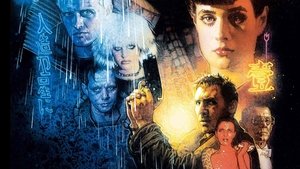
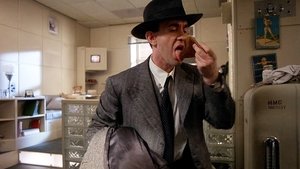
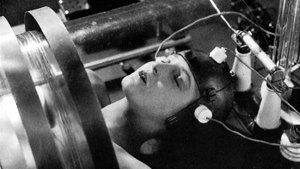
Cinema has long been a mirror reflecting our hopes and fears, and some of the most compelling films dare to explore the darker corners of possibility. Movies with a pessimistic world view aren't just about dystopia; they often question fundamental aspects of human nature, societal structures, and the potential consequences of our actions or inactions.
Think of the oppressive, bureaucratic nightmare of Brazil, where individual identity is crushed by rampant paperwork, or the stark survival struggles depicted in The Road, portraying a desolate post-apocalyptic landscape with unflinching realism. Even films like The Matrix or Dark City, while offering thrilling action, are grounded in the fear that our perceived reality might be a carefully constructed illusion designed to control us.
These films resonate because they tap into anxieties about control, loss of freedom, environmental collapse, or the inherent flaws within ourselves and our systems. They challenge the audience to confront uncomfortable truths and imagine futures where hope is a scarce commodity. While not always easy viewing, they provide potent commentary and remain significant works in cinematic history.
13. Her (2013)
Witness a lonely writer develop an intimate relationship with an advanced AI operating system with a captivating voice (voiced by Scarlett Johansson). Spike Jonze's film is a tender, melancholic look at connection, loneliness, and the evolving nature of relationships in a near-future world. The film's warm color palette and intimate focus contrast with its futuristic setting, creating a surprisingly human story about finding connection in unexpected places. While not overtly dystopian, it presents a subtle pessimism about human relationships in the digital age and the potential for emotional detachment.
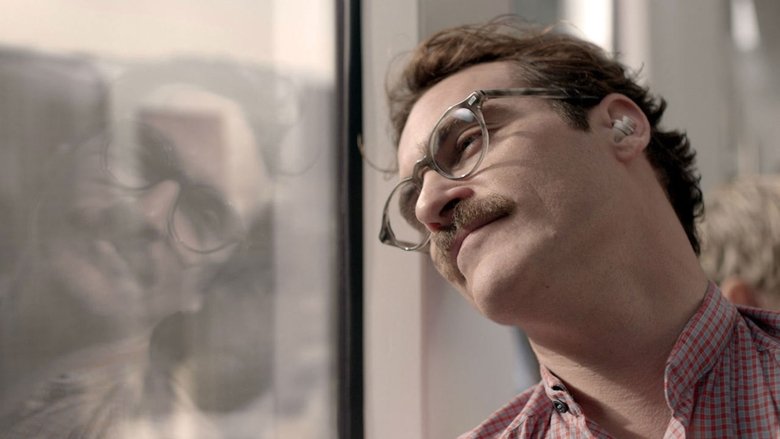
12. Eternal Sunshine of the Spotless Mind (2004)
Explore the messy, painful, and beautiful landscape of memory and relationships in this unique sci-fi romance from Charlie Kaufman and Michel Gondry. After a difficult breakup, a couple undergoes a procedure to erase each other from their memories. Gondry's inventive visual effects physically manifest the disintegration of memories, creating a dreamlike and disorienting experience. While it deals with the heartache of lost love and the desire to escape pain, the film ultimately reflects on the value of even difficult experiences, but its premise is rooted in a pessimistic view of dealing with emotional pain.

11. The Lobster (2015)
Experience the bizarre and darkly comedic world of Yorgos Lanthimos, where single people in a dystopian society are required to find a romantic partner within 45 days or be transformed into an animal of their choosing. Colin Farrell stars as a man checking into 'The Hotel' to find love. The film's deadpan humor and absurdist premise mask a sharp, cynical commentary on societal pressures surrounding relationships, conformity, and the arbitrary rules we live by. It's an unconventional and thought-provoking film that feels both alien and uncomfortably familiar.

10. The Matrix (1999)
Plug into a reality where humanity is unknowingly living in a simulated reality created by intelligent machines, using humans as an energy source. This groundbreaking sci-fi action film follows Neo, a computer programmer who discovers the truth and joins a rebellion against the machines. Known for its iconic 'bullet time' effect and fusion of martial arts with philosophical ideas, 'The Matrix' redefined action cinema. While it offers a glimmer of hope in its protagonist, the premise itself paints a deeply pessimistic picture of humanity's subjugation and the illusion of freedom.

9. Fight Club (1999)
Enter the mind of an unnamed narrator disillusioned with his mundane, consumerist life, who finds catharsis in underground bare-knuckle fighting with the enigmatic Tyler Durden. David Fincher's cult classic is a sharp, satirical critique of modern masculinity, consumer culture, and corporate life. The film's non-linear structure and unreliable narrator keep you guessing, while its stylish direction and darkly humorous tone make its bleak observations palatable. It's a provocative film that dissects societal anxieties and the search for meaning in a sterile world.

8. Dark City (1998)
Unravel the mystery of a city where the sun never shines and inhabitants' memories are altered nightly by mysterious beings called the Strangers. Alex Proyas's neo-noir sci-fi film follows John Murdoch, a man who wakes up with amnesia and the ability to manipulate the city's physical structure. The film's unique, timeless aesthetic blends elements of film noir, German Expressionism, and steampunk, creating a truly distinctive look. It's a mind-bending exploration of identity, memory, and the nature of reality, predating 'The Matrix' with some similar themes of a constructed world.
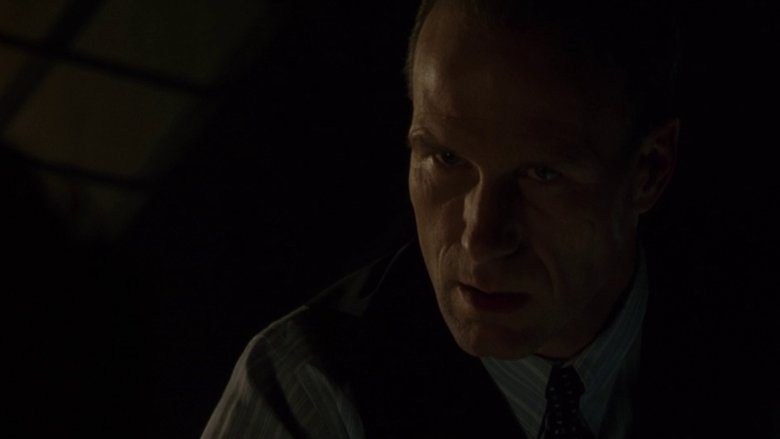
7. Snowpiercer (2013)
Board the Snowpiercer, a massive train carrying the last remnants of humanity after a failed climate-change experiment plunges the world into a new ice age. Directed by Bong Joon-ho (Parasite), this film is a thrilling and allegorical ride focusing on the extreme class system that develops within the train's cars. The film brilliantly uses the train's layout to represent societal hierarchy, from the impoverished tail section to the opulent front. It's a brutal, action-packed exploration of revolution, inequality, and the lengths people will go to survive, showcasing intense performances from its international cast.

6. A Clockwork Orange (1971)
Enter the unsettling world of Alex and his 'droogs' in Stanley Kubrick's controversial adaptation of Anthony Burgess's novel. Set in a near-future Britain, the film follows a gang of violent youths and Alex's subsequent psychological rehabilitation. Kubrick's distinctive use of classical music, particularly Beethoven, juxtaposed with extreme violence creates a jarring and thought-provoking experience. The film raises complex questions about free will, state control, and the nature of good and evil, portraying a society that is decaying both morally and aesthetically. It's a challenging film that pushes boundaries and sparks intense discussion.

5. Metropolis (1927)
Witness the grandeur and despair of Fritz Lang's silent film epic, a foundational work of dystopian cinema. Set in a futuristic city sharply divided between wealthy intellectuals living in skyscrapers and the underground workers who toil to support them, the film explores class conflict and industrial dehumanization. Its Art Deco designs and innovative special effects were revolutionary for their time and continue to inspire filmmakers today. The story follows the son of the city's master and a prophetess from the workers' city as they try to bridge the divide, but the film doesn't shy away from the brutal realities of exploitation and rebellion.

4. Brazil (1985)
Dive into Terry Gilliam's surreal, darkly comedic dystopian vision of a bureaucratic nightmare. Sam Lowry, a low-level government employee, dreams of escaping his mundane reality, only to find himself entangled in the labyrinthine, illogical systems he works for. Inspired by George Orwell's 'Nineteen Eighty-Four' but filtered through Gilliam's unique, fantastical lens, the film is a scathing satire of totalitarianism and the dehumanizing effects of technology and red tape. Its visual inventiveness is astounding, creating a world that is both absurd and terrifyingly plausible, highlighting the struggle for individuality in a suffocating system.

3. Blade Runner (1982)
Immerse yourself in the rain-soaked, neon-drenched streets of 2019 Los Angeles in Ridley Scott's seminal sci-fi noir. This film explores profound questions about identity, humanity, and what it means to be alive through the eyes of Deckard, a detective hunting down rogue synthetic humans known as replicants. The film's groundbreaking production design created the template for cyberpunk aesthetics and remains incredibly influential. Vangelis's haunting, atmospheric score perfectly complements the mood of urban decay and existential dread. It's a film that rewards multiple viewings, sparking endless debate about its ending and themes.

2. Children of Men (2006)
Step into a near-future world where humanity faces extinction due to unexplained mass infertility. Alfonso Cuarón's masterpiece is a visceral, grounded sci-fi thriller that follows a disillusioned former activist tasked with transporting the only pregnant woman on Earth. Known for its breathtakingly long, complex single-take action sequences, the film throws you directly into the chaos of a collapsing society rife with refugees, political instability, and desperation. The atmosphere is thick with melancholy and grit, portraying a world that has lost its future. It's a visually stunning and emotionally resonant film that feels terrifyingly plausible.

1. The Road (2009)
Navigate a desolate, ash-covered landscape in this unflinching adaptation of Cormac McCarthy's novel. Following a father and son's desperate journey across a post-apocalyptic America, the film is a raw, brutal examination of survival, love, and the persistence of hope in the face of absolute despair. Viggo Mortensen delivers a powerful, stripped-down performance as the Man, embodying the sheer physical and emotional toll of their existence. The film's stark cinematography emphasizes the emptiness and danger of their world, making every moment feel precarious and earned. It's a challenging watch, but one that lingers long after the credits roll, forcing you to confront the bleakest possibilities of humanity's future.

